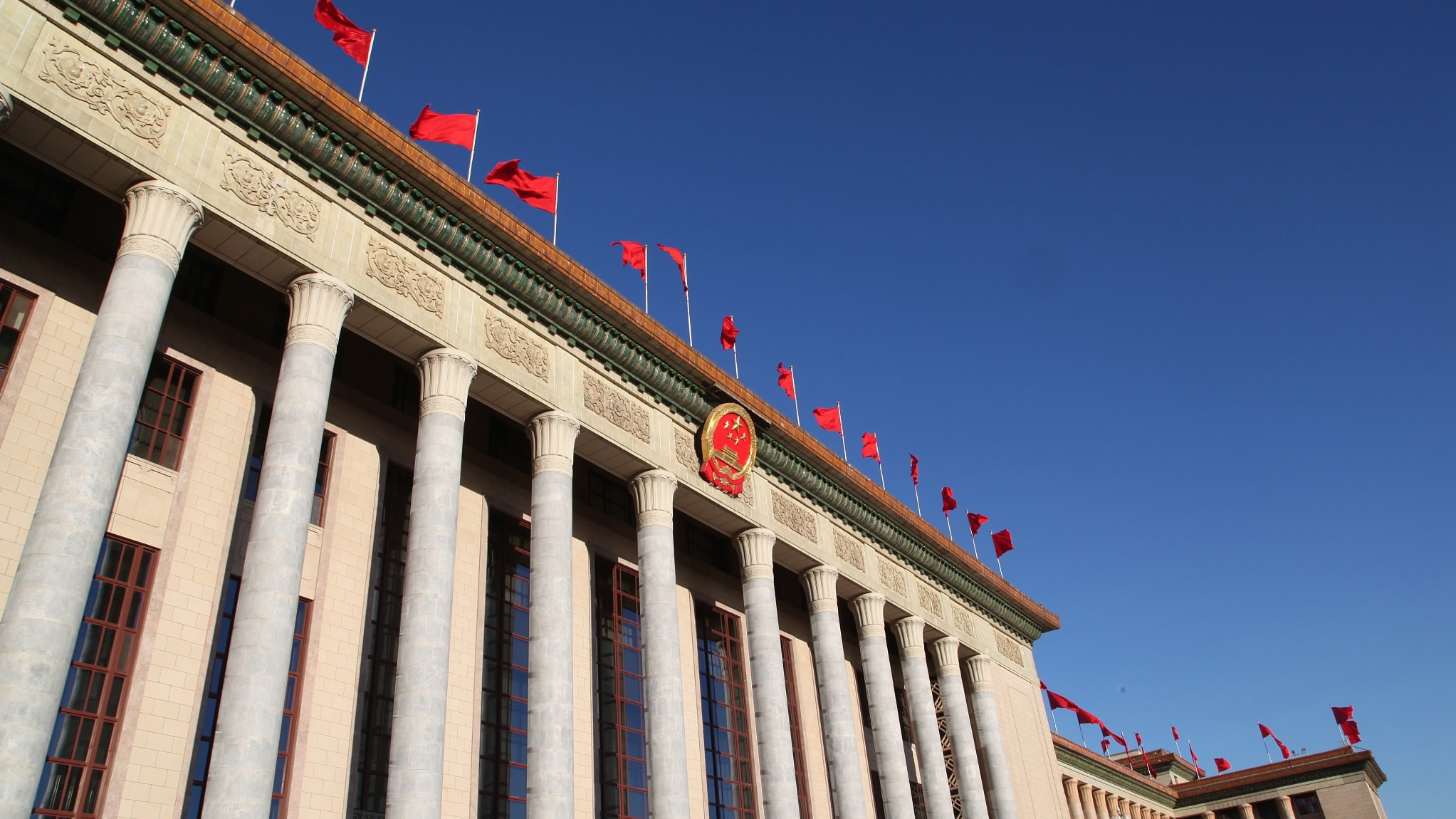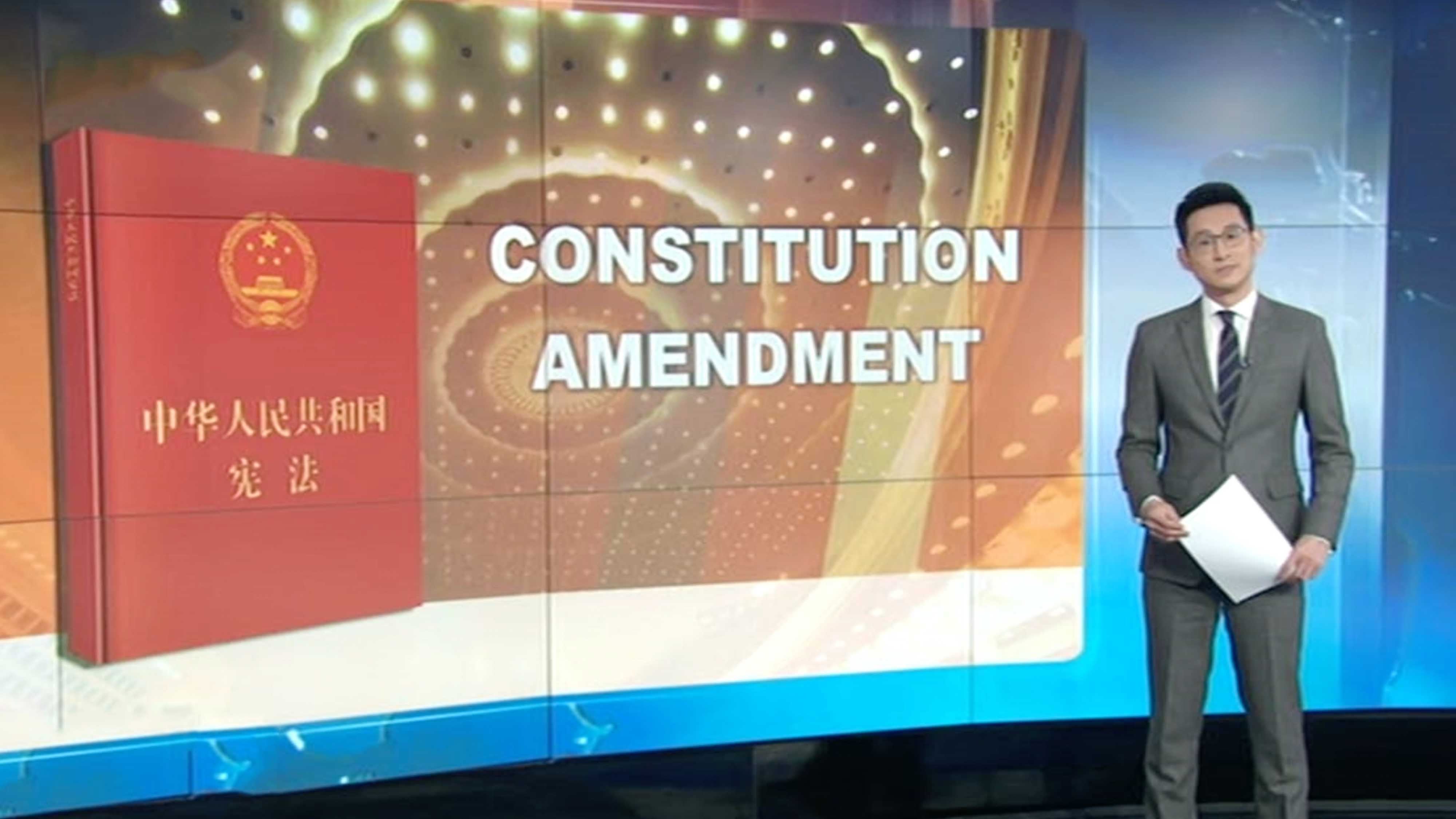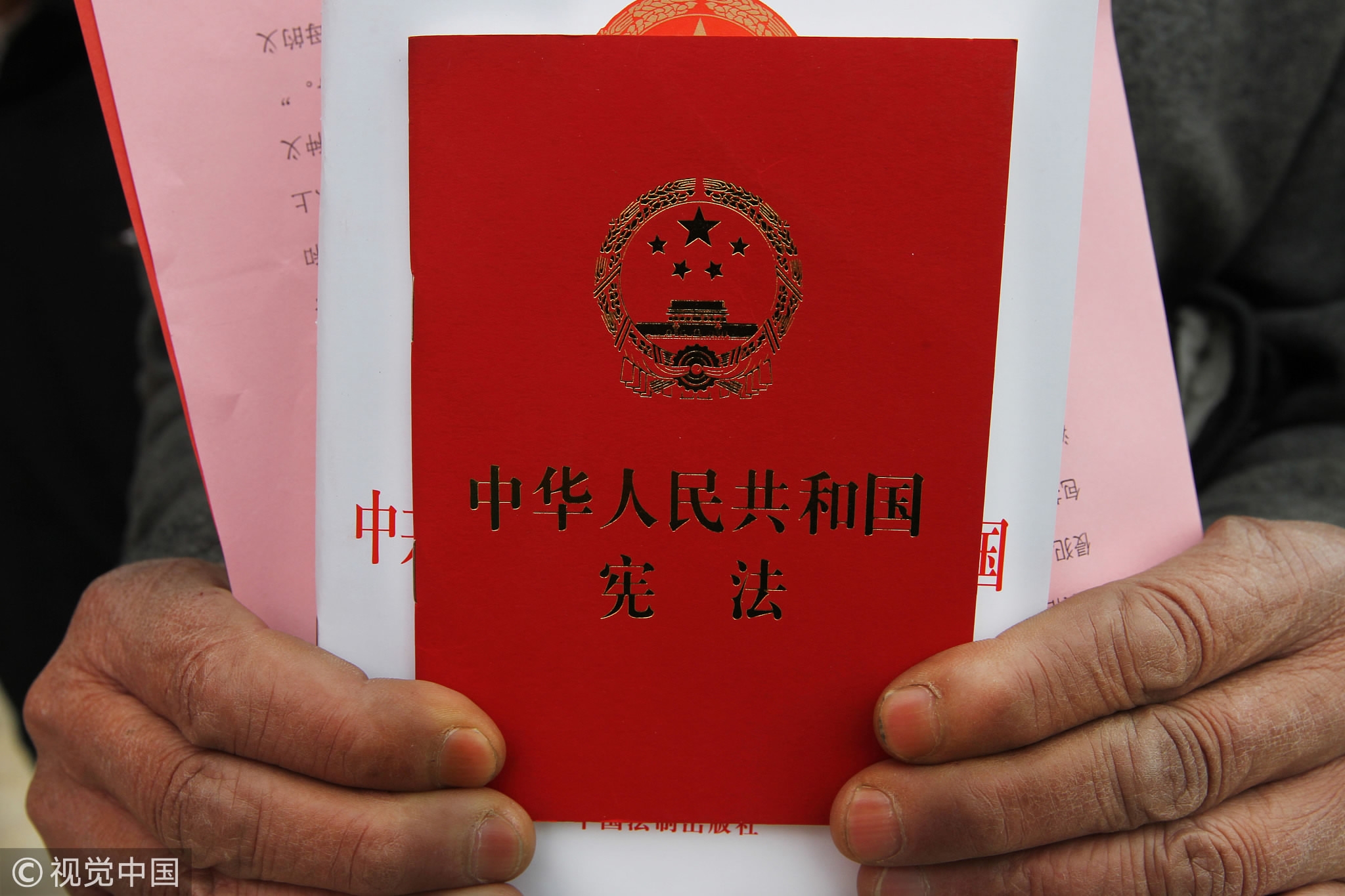
Politics
15:42, 18-Jan-2018
History of amendments to China's Constitution
CGTN

The second plenary session of the 19th Communist Party of China (CPC) Central Committee, which will be held on Jan. 18 and 19, will deliberate the draft amendments to part of China's Constitution as its top agenda.
The draft amendments will be later explained at the annual session of National People's Congress (NPC) or top legislature in March and put towards a vote to be legalized.
The existing Constitution, which is the fourth Constitution since the founding of the People's Republic of China on Oct. 1, 1949, was adopted on Dec. 4, 1982 by China's top legislature.
The Constitution, consisting of 138 articles in four chapters, has been amended four times: In 1988, 1993, 1999 and 2004.
The amendments to the Constitution "must be proposed by the Standing Committee of the National People's Congress or by more than one-fifth of the deputies to the National People's Congress and adopted by a vote of more than two-thirds of all the deputies to the Congress," the Constitution of the People's Republic of China states.

Here is an overview on four amendments made over the past three decades:
1988
On April 12, 1988, the First Session of the Seventh NPC
The first amendment was made to Article 10 and Article 11, affirming the legal status of the private sector and allowing transfer of land-use rights.
The amendments – legitimizing the existence of the rapidly developing private economy and providing a constitutional basis for the commercial transfer of land use rights – were the results of China's economic reform since 1978, while also provided prerequisites for further economic development.
1993
On March 29, 1993, the First Session of the Eighth NPC
The second amendment, which was made to nine articles, declared China will practice a market economy instead of a planned economy. It came after the CPC adopted the notion of a “socialist market economy" at its 14th National Congress in 1992.

/VCG Photo
/VCG Photo
It also incorporated the system of CPC-led Multi-party Cooperation and Political Consultation into the preamble of the Constitution.
1999
On March 15, 1999, the Second Session of the Nineth NPC
China revised six items in its Constitution.
It enshrined the guiding role of Deng Xiaoping Theory and declared the rule of law is stipulated as a national policy.
One of the most important moves was to upgrade the private sector from "complement of the socialist economy" to "an important component" in the country's market economy, which is widely regarded as milestone in private sector development.
2004
On March 14, 2004, the Second Session of the Tenth NPC
"The State respects and protects human rights," says the new expression added to the Constitution, marking the first time China enshrined human rights protection into the Constitution, thus becoming a principle of paramount importance under the country's fundamental law.
The important theory of the "Three Represents" was also written into China's Constitution, along with the provision that "private property obtained legally shall not be violated," putting private assets on an equal footing with public property.
2018
No details have yet been released about what the constitutional amendment will involve.
However, senior leaders of the Political Bureau of the CPC Central Committee held a meeting last Friday agreeing that the proposal to amend the country's Constitution should only include "changes to part of it, not a revision on a large scale."
It also emphasized the constitution amending process must follow such principles as upholding the CPC’s leadership, sticking to the path of socialist justice with Chinese characteristics and adhering to the correct political direction, according to a statement issued after the meeting.

SITEMAP
Copyright © 2018 CGTN. Beijing ICP prepared NO.16065310-3
Copyright © 2018 CGTN. Beijing ICP prepared NO.16065310-3